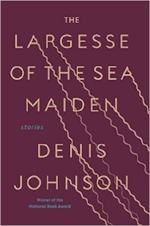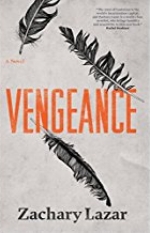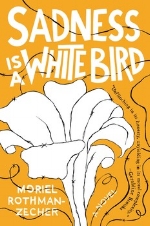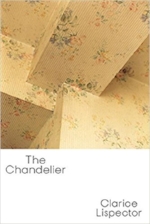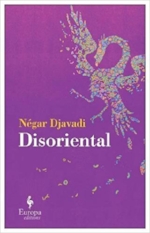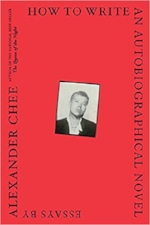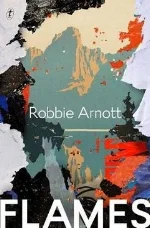Photo: Arcadian Books, New Orleans. Credit: Kevin Rabalais
2018 promises to be a stellar year for readers. Some of our favorite writers have new books, and the crop of debut writers is exciting. We can't wait to get our hands on novels by Michael Ondaatje, Meg Wolitzer, Julian Barnes and Amy Bloom. There's a novel set in Tangier that brings to mind the fascinating lives of Paul and Jane Bowles; the true story of a woman's obsession with a serial killer; the story an an Israeli pitted against his Palestinian best friends; posthumous works by Denis Johnson and William Trevor; and essay collections by some of our most astute public intellectuals, including Zadie Smith, Lorrie Moore and Marilynne Robinson. In these books, we'll travel to Latvia, Mexico, Peru, Hungary, Nigeria, Turkey and Cuba, back to the American Civil War, through the loves of artist Leonora Carrington, the mobsters of Chicago and take on the scope of Iranian history.
The following 53 titles promise six months of provoking, moving, challenging and pleasurable reads. Keep this list handy so you don't get behind. You'll want to be ready for the books coming in the second half of 2018 (Think Kate Atkinson, Andrew Miller, Sebastian Faulks!).
JANUARY
The Immortalists by Chloe Benjamin (Putnam; Headline)
Lorrie Moore calls her “a great new talent,” so there’s not really anything else we need to know before digging into this novel about what it means to learn the date of your death.
In 1969, the four Gold siblings sneak out to meet with a fortuneteller. The things they hear about their futures shape their lives to come.
Who Says You Can’t? You Do by Daniel Chidiac (Harmony; Hachette)
Sure, it sounds like a lot of January “Let’s fix everything about ourselves right now” books, but the reviews are glowing. Instead of focusing on gimmicks, Chidiac claims we can change our lives in ways that make them more aligned with our values by taking responsibility for our choices.
A State of Freedom by Neel Mukherjee (W. W. Norton)
Making use of multiple narratives and threads of stories, A State of Freedom asks difficult questions about migration and displacement.
“An extraordinary achievement. Subtle and multilayered, it’s a study of social divisions, written with tremendous tenderness; a work that insists on the dignity of figures obliged to lead undignified lives. A powerful, troubling novel. The moment I finished it, I began it again.” —Sarah Waters
An Uncommon Reader: A Life of Edward Garnett, Mentor and Editor of Literary Genius by Helen Smith (FSG)
Early reviews call this biography of the legendary literary figure penetrating and definitive. “Garnett’s life will not need to be written again,” Andrew Morton proclaimed in the Times Literary Supplement.
As an editor, reader, critic and mentor, Garnett introduced the world to D. H. Lawrence, Joseph Conrad, John Galsworthy, Henry Green and T. E. Lawrence. His wife, Constance, is well known for her translations of Russian greats.
The Largesse of the Sea Maiden: Stories by Denis Johnson (Random House)
Influential, beloved writer Denis Johnson died in 2017. This posthumous collection of stories completed shortly before his death arrives twenty-five years after his iconic Jesus’ Son to muse on the past and the mysteries of the universe.
FEBRUARY
White Houses by Amy Bloom (Random House)
This historical novel about Eleanor Roosevelt connects the future first lady with a reporter on FDR’s first presidential campaign. That meeting turns into a friendship, then into intimacy.
“Amy Bloom illuminates one of the most intriguing relationships in history. … And love is what this book is all about: It suffuses every page, so that by the time you reach the end, you are simply stunned by the beauty of the world these two carved out for themselves," according to Melanie Benjamin.
Feel Free: Essays by Zadie Smith (Penguin)
In this new collection, Zadie Smith offers five sections (including In the World, On the Bookshelf and Feel Free) of thought-provoking essays, some published here for the first time. Her subjects include Swiss novelists, libraries, social media and its uses and abuses, rappers and climate change.
“If only all such thoughts were so cogent and unfailingly humane. The author is honest, often impassioned, always sober… Smith’s observations are timeless.” —Kirkus
What Are We Doing Here? by Marilynne Robinson (FSG; Little, Brown)
The Pulitzer Prize-winning author of Housekeeping, Gilead and Home returns with more essays on politics, religion, faith and the great thinkers who have helped shaped the ways we live.
The Line Becomes a River: Dispatches from the Border by Francisco Cantú (Riverhead Books; Vintage)
Francisco has a unique perspective on the issues surrounding the U.S.-Mexico border: his mother is the daughter of a Mexican immigrant, and he decides to join the Border Patrol. But the job gives him nightmares, so he gives it up. People on each side looking toward the other, however, remain in limbo.
Phil Klay calls this work of nonfiction, “A beautiful, fiercely honest, and nevertheless deeply empathetic look at those who police the border and the migrants who risk—and lose—their lives crossing it. In a time of ill-formed or downright deceitful political rhetoric, this book is an invaluable corrective.”
Vengeance by Zachary Lazar (Catapult)
Inspired by seeing The Life of Jesus Christ at the Louisiana State Penitentiary at Angola (home of the prison rodeo), Zachary Lazar has written a novel about a convicted murderer.
“More than any book I’ve read in the twenty-first century,” Kiese Laymon writes, “Zachary Lazar’s Vengeance makes the reader reckon with the questions of what’s real, what’s imagined, and why those questions matter more in 2017 than in any other time in our nation.”
The Cage by Lloyd Jones (Text)
The Booker Prize-shortlisted author of Mister Pip and Hand Me Down World returns with a new book about cruelty and compassion. A Lloyd Jones novel never disappoints. The publisher describes this one as "a powerful allegorical tale about humanity and dignity and the ease with which we can justify brutality."
Two strangers appear in a small town. They've suffered a trauma about which they cannot or will not speak. Suspicion overwhelms hospitality.
I’ll Be Gone in the Dark: One Woman’s Obsessive Search for the Golden State Killer by Michelle McNamara (HarperCollins; Faber & Faber)
Michael Connelly calls this nonfiction title by Michelle McNamara (and completed after her death by her lead researcher) “a one sit-down read. … true crime reporting at its best.” The serial rapist and murderer called “the Golden State Killer,” active in California for a decade, obsessed McNamara. Three decades after he disappeared, she spent her nights trying to do what the best detectives and police officers could not: find the killer. With an introduction by Gillian Flynn and an afterword by McNamara’s husband, Patton Oswalt.
Sadness Is a White Bird by Moriel Rothman-Zecher (Simon & Schuster)
This debut novel follows nineteen-year-old Jonathan, who has moved back to Israel after living in Pennsylvania. He’s ready to do his military service and honor the work of his grandfather, who fled Europe for Israel during the Second World War. The prospect of patrolling the occupied Palestinian territories, however, is painful for him, especially because of his close friendship with Palestinian twins. Now he’s alone in a military jail. Sadness Is a White Bird explores the decisions that landed him there. “Unflinching in its honesty, unyielding in its moral complexity.” —Geraldine Brooks
Self-Portrait with Boy by Rachel Lyon (Simon & Schuster)
If a fluke could suddenly propel the career of your dreams, would you run with it? Even if it destroyed the lives around you? In this debut, Lu Rile is a struggling photographer: she might lose her apartment, her father is ill, and she’s working three jobs just to stay afloat. One day, she’s taking a self-portrait and captures a horrific event in the background—a boy falling to his death. The image is startling, terrible. And beautiful. It could make her name.
The Neighborhood by Mario Vargas Llosa (FSG)
In this new novel by Nobel Prize winner Mario Vargas Llosa, two wealthy Lima couples enter a vortex of blackmail and erotic adventure. According to the publisher, The Neighborhood is “a twisting, unpredictable tale … at once a scathing indictment of Fujimori’s regime and a crime thriller that evokes the vulgarity of freedom in a corrupt system.” Also released this month is Sabers and Utopias, a collection of his essays about Latin America on the global stage.
MARCH
Tangerine by Christine Mangan (Ecco; Little, Brown)
This debut novel set in Tangier finds Alice Shipley blindsided by her husband. When he departs the plane to join her, alongside him is her former best friend Lucy, a woman she hasn’t spoken to in a year. She tries to reconcile with her old roommate, a fearless adventurer who wants to help Alice adjust to this new life. But when Alice’s husband disappears, she questions everything and everyone around her. Joyce Carol Oates offers a glowing recommendation: “As if Donna Tartt, Gillian Flynn, and Patricia Highsmith had collaborated on a screenplay to be filmed by Hitchcock—suspenseful and atmospheric.”
A Reckoning by Linda Spalding (Pantheon)
We loved Linda Spalding's previous novel, The Purchase, and her fascinating work of nonfiction Who Named the Knife. With A Reckoning, Spalding delivers another historical novel, this one set on the brink of the American Civil War. A visitor arrives at the Dickinson farm and is invited to stay. They think he's a naturalist, gathering information on the flora and fauna of the area, but his main business is delivering maps and knives to help slaves escape.
"A Reckoning is an extraordinary novel. A humane and timely examination of how the societies we create—just or profoundly unjust—set the parameters for the people we become. This is a beautiful and brilliant work of art, vulnerable, driven, and unsettling." —Madeleine Thien, author of Do Not Say We Have Nothing
The Chandelier by Clarice Lispector (New Directions)
This is the first English publication of Clarice Lispector’s second novel, which helped cement her place as one of Brazil’s most important writers.
“It stands out in a strange and difficult body of work,” biographer Benjamin Moser writes, “as perhaps her strangest and most difficult book.” Full of interior monologues and fragments, The Chandelier follows Virginia, who searches for freedom through the act of creation.
In the Shadow of Statues: A White Southerner Confronts History by Mitch Landrieu (Viking)
Mitch Landrieu, two-term mayor of New Orleans (and son of former mayor Moon Landrieu), stepped onto the national stage when he agreed to remove Confederate statues from public spaces in the city. In this memoir and personal history of the city and race relations in the country in general, Landrieu reflects of the legacy of slavery, Southern nostalgia, systematic inequality and hope.
“It’s an important book for everyone in America to read, because it shows how intellectual honesty can lead to moral clarity.” —Walter Isaacson
Memento Park by Mark Sarvas (Farrar, Straus & Giroux)
The author of the fabulous Harry, Revised (and contributor to Sacred Trespasses) returns with a novel about a painting stolen from Matt Santos’s family in Hungary during World War Two. There's a family estranged and questions about the nature of art. How do we move forward when the past looms unreasonably large?
“Mark Sarvas has written a gripping mystery novel about art that is also a powerful meditation on fathers and sons, and the need to face up to the falsehoods spawned by the horror of the past.” —Salman Rushdie
The Dictionary of Animal Languages by Heidi Sopinka (Scribe)
Inspired by the life of artist Leonora Carrington, this debut novel chronicles the strange movements of a long life caught up in the vagaries of history and the passions of love and art.
“With stunning prose, lavish details, deep wisdom and emotional precision, reading this book is like falling in love—my interest in everything else was lost.” —Claire Cameron
Neruda: The Poet’s Calling by Mark Eisner (HarperCollins)
Billed as the most definitive biography yet of Nobel Prize-winning Chilean poet Pablo Neruda, this new book arrives after fifteen years of research. Both a biography and a deep-dive into Neruda’s poetry, Neruda does not simplify the life or work of one of South America’s most influential writers and wealthiest communists.
Speak No Evil by Uzodinma Iweala (HarperCollins)
From the author of Beasts of No Nation, this is a novel about being caught between two cultures and having to hide the truth of yourself. Niru, son of Nigerian immigrants, grows up in Washington, D.C. He’s looking forward to attending Harvard, has good friends. But he also has a secret he must keep from his parents: he’s gay. When his father discovers this, the fallout is worse than Niru could have feared.
“A lovely slender volume that packs in entire worlds with complete mastery. Speak No Evil explains so much about our times and yet is never less than a scintillating, page-turning read.” —Gary Shteyngart
Chicago by David Mamet (HarperCollins)
The Pulitzer Prize-winning author of Glengary Glen Ross has written children’s books, plays, novels, essays and many films, including The Spanish Prisoner and State and Main. His new novel, Chicago, is set in the 1920s mob-infested Windy City. Filled with rich language, snappy dialogue, murder and revenge, Chicago promises to be a literary page-turner.
Anecdotal Evidence by Wendy Cope (Faber & Faber)
Author of Making Cocoa for Kingsley Amos and Family Values, Wendy Cope delivers her first collection of poems since 2011. These include unorthodox retakes of Shakespeare and tributes to friends. Her poems offer humor, compassion and wisdom.
The Gunners by Rebecca Kauffman (Counterpoint)
Just thirty years old, Mikey Callahan suffers from macular degeneration. One of his childhood friends—a member of the group that called themselves “The Gunners”—has killed herself, prompting a reunion and a reckoning.
“Perceptive, funny, and entertaining … Reminiscent of The Big Chill and St. Elmo’s Fire, this remarkable novel is just as satisfying and provides readers with an entire cast of characters who will feel like old friends upon finishing.” —Publishers Weekly
APRIL
The Overstory: A Novel by Richard Powers (W. W. Norton; )
A new novel by National Book Award-winner Richard Power is always a treat, but it’s also always a shock of something unexpected and strange but ultimately beguiling. Fiercely intelligent, attuned to the topical but from a surprising angle, Powers creates novels and characters that remain in our psyches as we puzzle over big ideas and the everyday actions who make us who we are. This, his twelfth novel, follows a handful of strangers—including a Vietnam Air Force loadmaster who falls from the sky, a college student electrocuted but brought back to life, an artist inundated with photographs of a chestnut tree—to meditate on activism and the value and precariousness of the natural world.
Disoriental by Négar Djavadi (Europa Editions)
This winner of Lire Best Debut Novel and Le Prix du Roman News follows Kimia Sadr as she leaves Iran as a child to make a new life in France with her father. Taking on key moments in Iran’s history and family stories (including those about a great-grandfather with fifty-two wives), Disoriental becomes a new version of A Thousand and One Nights.
Theory of Bastards by Audrey Schulman (Europe Editions)
Europa Editions never disappoints, and this forthcoming novel from Canadian writer Audrey Schulman looks incredibly intriguing. Francine Burk has recovered from long-term debilitating pain. She’s also doing well professionally. Her discovery of the “Theory of Bastards” has earned her grants and a new position. It’s also toppled presidents and public figures. She moves on to study bonobos, but a devastating weather event forces scientists to abandon their work.
The publisher calls it “not quite sci-fi, not quite dystopian … [a] superb literary novel.”
The Female Persuasion by Meg Wolitzer (Riverhead Books)
The author of The Interestings gives us another thrilling novel about influence, purpose, loyalty and ambition. A shy university student is inspired by a force in the women’s movement, influential Faith Frank. But that influence not only excites new possibilities; it also pulls her away from the future and the love she’d expected.
Among the Living and the Dead: A Tale of Exile and Homecoming by Inara Verzemnieks (Pushkin Press)
Inara Verzemnieks was raised by her grandparents in the United States, but she heard her grandmother’s stories about the home in Latvia they had to leave behind during the Second World War and the family she wouldn’t see again for fifty years.
Kirkus call it “a highly polished memoir of enormous heart.”
How to Write an Autobiographical Novel: Essays by Alexander Chee (Mariner)
In the author’s first collection of nonfiction, Chee shares his manifesto on life, literature and politics; reassesses historical events, including 9/11 and the AIDS crisis; and muses on the jobs that supported his writing, including reading Tarot cards and bookselling. Jami Attenberg writes: “How to Write an Autobiographical Novel is a rare hybrid of a book: an act of poetry, a gift of entertainment, and a primer for life. Alexander Chee is one of our most important writers and we should listen to every damn thing he has to say.”
See What Can Be Done: Essays, Criticism, and Commentary by Lorrie Moore (Knopf)
One of our favorite writers returns with fifty essays on culture, TV, books, politics and more.
“Fifty years from now, it may well turn out that the work of very few American writers has a much to say about what it means to be alive in our time as that of Lorrie Moore.” —Harper’s Magazine
The Only Story by Julian Barnes (published in Feb. in the UK and Australia, Jonathan Cape; published in the US in April, Knopf)
A new love story from Julian Barnes set in London in the 1960s. Paul is nineteen. On summer break, his mother encourages him to join a tennis club and he’s paired with Susan, a married mother of two adult children. They quickly become lovers. Decades later, Paul ponders first love, memory and devotion.
Circe by Madeline Miller (Little, Brown)
The Orange Prize winning author of The Song of Achilles returns with a novel about Circe, best known as the temptress of Odysseus.
“Madeline Miller, master storyteller, conjures Circe glowing and alive—and makes the Gods, nymphs and heroes of ancient Greece walk forth in all their armored splendor.” —Helen Simonson
America Is Not the Heart by Elaine Castillo (Viking)
This first novel follows three generations of an immigrant family from the Philippines.
The publisher calls America Is Not the Heart “a sprawling, soulful telenovela of a debut novel. With exuberance, muscularity, and tenderness, here is a family saga; an origin story; a romance; a narrative of two nations and the people who leave home to grasp at another, sometimes turning back.”
The Death of Noah Glass by Gail Jones (Text)
IMPAC and Prix Femina Étranger shortlisted writer Gail Jones offers a new novel about the sudden death of art historian Noah Glass—and the discovery that an Italian sculpture has disappeared from a museum he recently visited. Noah’s children are left with questions about who their father was and what he may have done.
Varina by Charles Frazier (HarperCollins)
The fourth novel by the author of Cold Mountain takes place during the American Civil War. When Varina reluctantly marries the widower Jefferson Davis, she imagines a quiet life as a landowner’s wife. Instead, her husband seeks political power and influence, ultimately becoming president of the Confederacy.
MAY
Warlight by Michael Ondaatje (Knopf)
In his first novel since The Cat’s Table, Booker Prize and Giller Prize winner Michael Ondaatje tells the story of two teenagers left behind in the care of a person called The Moth following the Second World War. From London, they watch their parents leave for Singapore. When their mother later returns alone, she explains nothing, not the absence of their father, nor the months of silence.
The Peace Machine by Özgür Mumcu (Pushkin Press)
Turkish writer and journalist Özgür Mumcu has created a novel reminiscent of those by Jules Verne. In 1914, war seems inevitable, but the search for a machine to influence people’s minds and actions might hold it at bay. Set in Belgrade, Istanbul and Paris, The Peace Machine follows an Istanbul writer of erotic fiction as he hunts for the secrets of the machine.
The Mars Room by Rachel Kushner (Scribner)
In her first novel since the bestselling The Flamethrowers, Rachel Kushner looks inside a prison and the lives outside that have been overturned by incarceration.
“Kushner is a young master,” George Saunders wrote, “I honestly don’t know how she is able to know so much and convey all of this in such a completely and mesmerizing way.”
Flames by Robbie Arnott (Text)
This debut novel has an unusual premise: A man builds a coffin for his twenty-three-year-old sister. The sister then does what any sensible young woman in good health would do: She runs. Arnott won the 2015 Tasmanian Young Writers’ Fellowship and the 2014 Scribe Nonfiction Prize for Young Writers.
Barracoon: The Story of the Last Slave by Zora Neale Hurston (Amistad)
This never-before-published book Zora Neale Hurston, author of the groundbreaking Their Eyes Were Watching God, chronicles the life of the last known survivor of the Atlantic slave trade.
Hurston interviewed ninety-five-year-old Cudjo Lewis in 1927 in Plateau, Alabama. Four years later, she returned to meet with him again to document his memories of Africa, his Middle Passage to America shackled with a hundred other captives, and his years of slavery before the end of the Civil War.
Last Stories by William Trevor (Viking)
Beloved short story writer and novelist William Trevor died in November 2016. This highly anticipated collection delivers six previously unpublished stories.
“The indisputable master of twentieth-century fiction … Trevor’s carefully chiseled, lyrical prose—at once ironic and elegiac—is addictive, his insights acutely compassionate.” —Publishers Weekly
A Shout in the Ruins by Kevin Powers (Little, Brown)
Former machine gunner and Michener Fellow in Poetry, Kevin Powers (author of The Yellow Birds) follows up with a novel that begins during the American Civil War. It spans more than one hundred years in the history of the country. “Kevin Powers has seamlessly woven nineteenth and twentieth century lives to create a novel that resonates out of the past to address the timeliest issues of America in our own century. … What an impressive novel.” —Ron Rash
Not That Bad: Dispatches from Rape Culture by Roxane Gay (Harper Perennial)
Edited by New York Times-bestselling author Roxane Gay, this book collects first-person essays about assault, harassment, rape, the refugee crisis, child molestation and many other deeply personal crises.
The publisher calls it “heartbreakingly candid … reflects the world we live in and offers a call to arms.”
Love and Ruin by Paula McLain (Ballantine)
The author of The Paris Wife and Circling the Sun returns to the life and loves of Ernest Hemingway with a novel about his marriage to Martha Gellhorn, journalist, writer, war correspondent and competitor. She was there as he wrote For Whom the Bell Tolls (which he dedicated to her) and witnessed his greatest literary successes. But she was adamant that she would never become a footnote to her famous husband.
JUNE
Some Trick: Thirteen Stories by Helene DeWitt (New Directions)
Helen DeWitt, fluent in fourteen languages, has much to say about communication. “Reading and speaking in another language is like stepping into an alternate history of yourself where all the bad connotations are gone,” she noted in an interview with New York Magazine.
She’s been called an “intellectual powerhouse” (The Huffington Post) and compared to Gogol. These new stories promise to be funny, brilliant, complicated and provoking.
Mad Boy by Nick Arvin (Europa Editions)
I love a novel about a lesser-known or misunderstood war. Remember Giles Foden’s Ladysmith about the Boer War? Mad Boy takes place during the War of 1812 and follows Henry, who’s trying to fulfill his mother’s dying wish to be buried at sea. His father’s in debtor’s prison, and his brother’s off fighting the British.
“This brilliant musket blast of a novel,” Laird Hunt writes, “in which the lucky reader will encounter falling cows, repurposed pickle barrels, fascinating schemes and fabulous schemers—is alive with humor, heat and heart.”
How We Desire by Carolin Emcke (Text)
This is the first book from German war reporter and Peace Prize winner Carolin Emcke to be translated into English. Emcke reflects on the nature of sexuality and gender while telling her own story about the fluidity of desire.
“Delicate and vulnerable, angry, passionate, clever and thoughtful. An amazing work.” —Westdeutsche Allgemeine Zeitung
Felix Culpa by Jeremy Gavron (Scribe)
This is a detective novel created from sentences from one hundred books. There’s a writer, a prison release, a dead boy.
According to the publisher: “Felix Culpa is not a novel you have read before. Challenging the reader’s preconceptions, it makes out of the author’s borrowings something wholly itself—seamless, singular, and dazzlingly resonant.”
The Melody by Jim Crace (published February in the UK and Australia, Macmillan; June in the US, Nan A. Talese)
A new novel from the author of Being Dead, Harvest and Quarantine. A musician mourns the death of his wife, retreating from the world for the most part, performing only the occasional recital for small audiences. One night he suffers a terrifying attack in his home, but he can’t say who the perpetrator was. The strange attack rekindles rumors about who or what lives in the surrounding forest.
Revolution Sunday by Wendy Guerra (Melville House)
This is the first English translation of bestselling Cuban author Wendy Guerra. In this novel, a rising literary star arrives in Spain to receive an award, but ex-pats there assume she’s a Castro informant. Back in Cuba, she’s under government surveillance. After she falls in love with a Hollywood filmmaker, she discovers that what she thinks she knows about everyone—including her new lover and her family—is wrong.
And a bonus title (complete with shameless self-promotion):
The paperback edition of our Conversations with James Salter (University Press of Mississippi) will be released on June 15. James Salter, author of such classics A Sport and a Pastime, Light Years and Burning the Days, is a fascinating figure, one who lived many lives, as a fighter pilot, a filmmaker and screenwriter, a short story writer and novelist. He speaks eloquently, and sometimes with brash contrariness, about art, life, sexuality, memory, reinvention, literary success and loss. As in his fiction and essays, James Salter evokes the charm and grit of France and the creative process.
The collection includes interviews that span his career, some never before published in English. His words are thought-provoking, confronting and inspiring.
"Penetrating interviews over several decades that open the thinking and perspectives of the elegant and acutely gifted novelist, playwright and short story writer Jim Salter. His sensibilities invite deep introspection of how we connect as men and women, those who act and those who observe. Salter clearly lived life as an active participant and enthusiast. To read him, to hear his explication of his purpose, is to reinforce our appreciation for our individual passage through our own lives. Salter's objective, in his words, in writing was 'to enthrall the reader.' He succeeded." —Online reader review by Virgil Kane.
Reader in the shadows of St Louis Cathedral and Jackson Square, New Orleans. Credit: Kevin Rabalais






